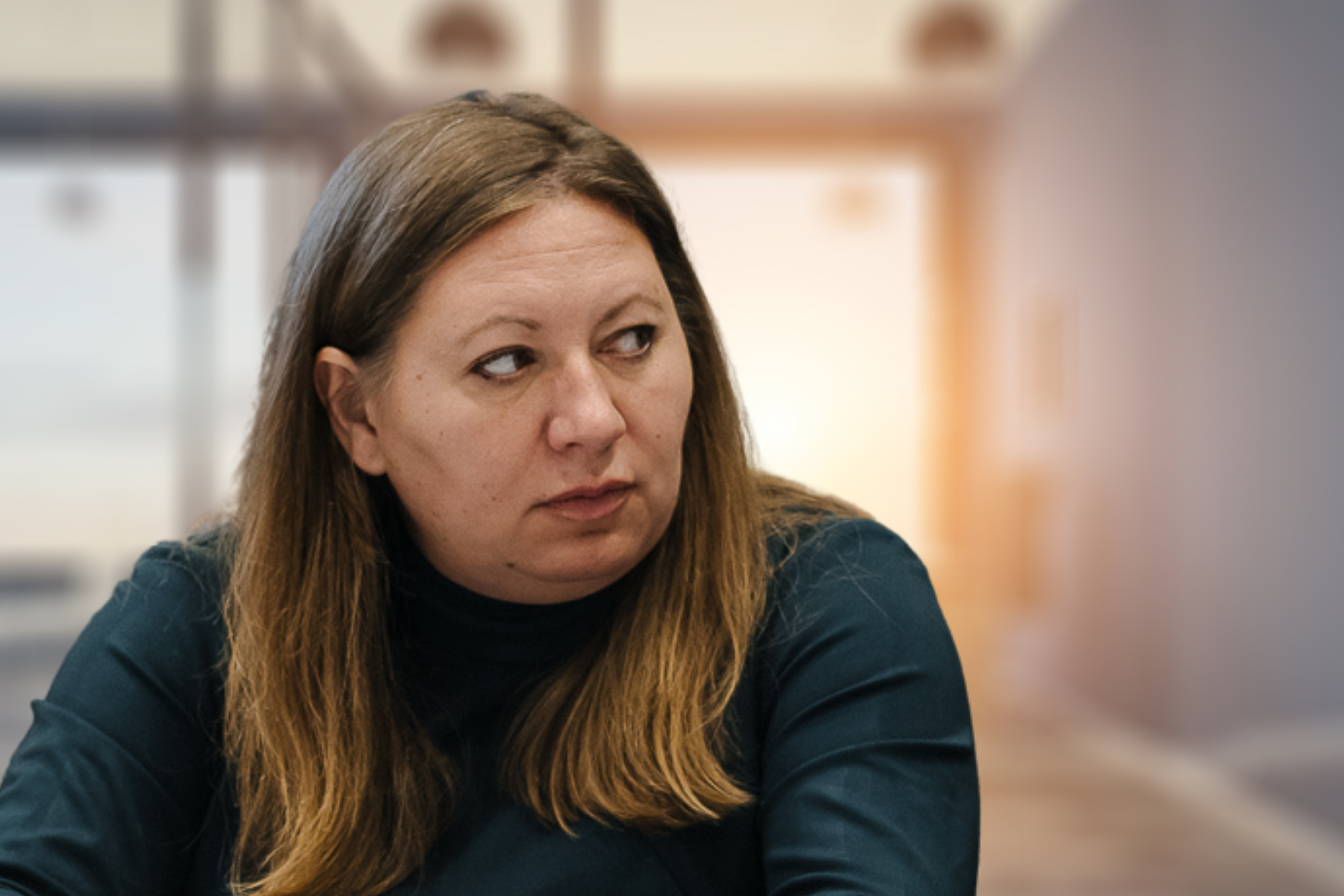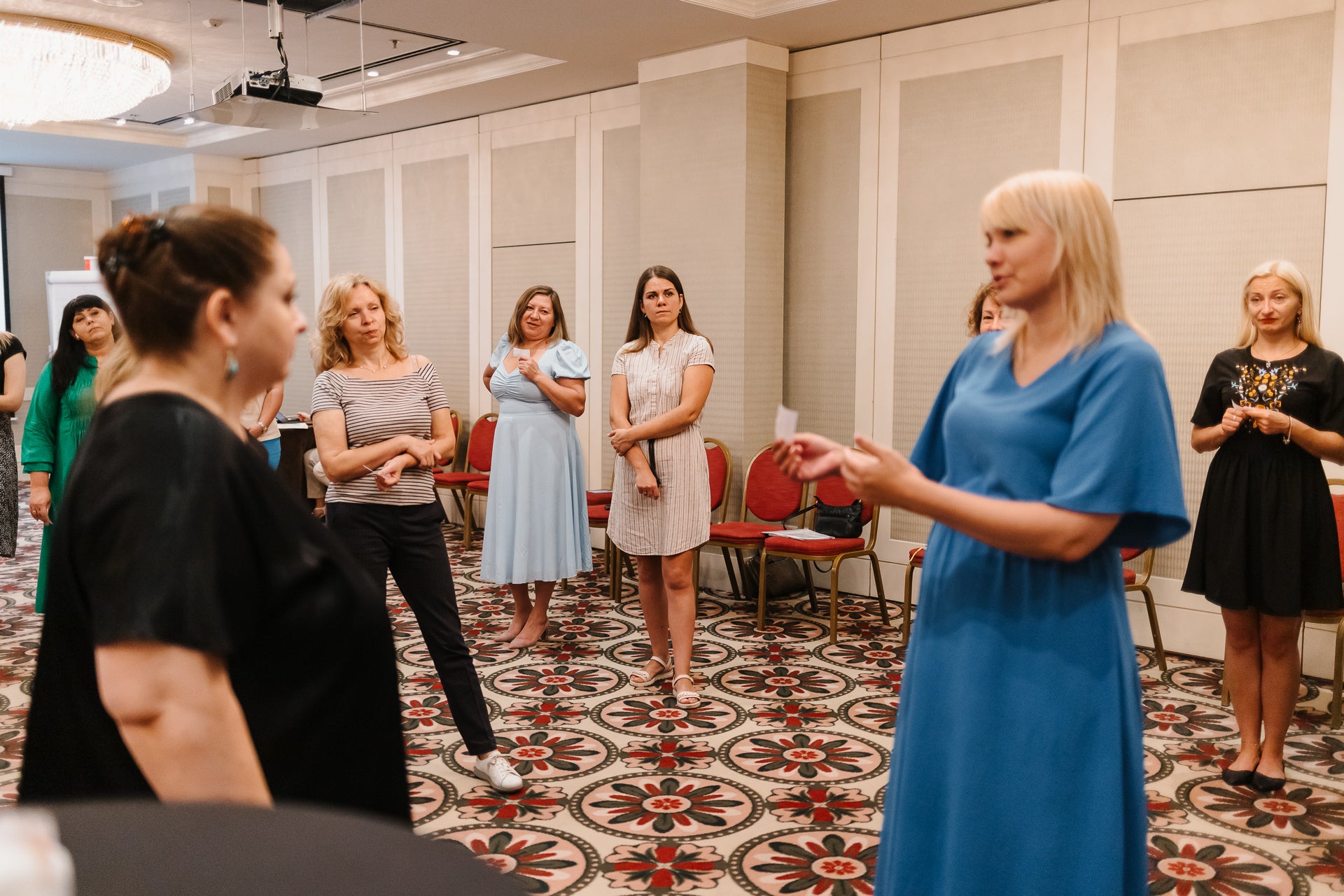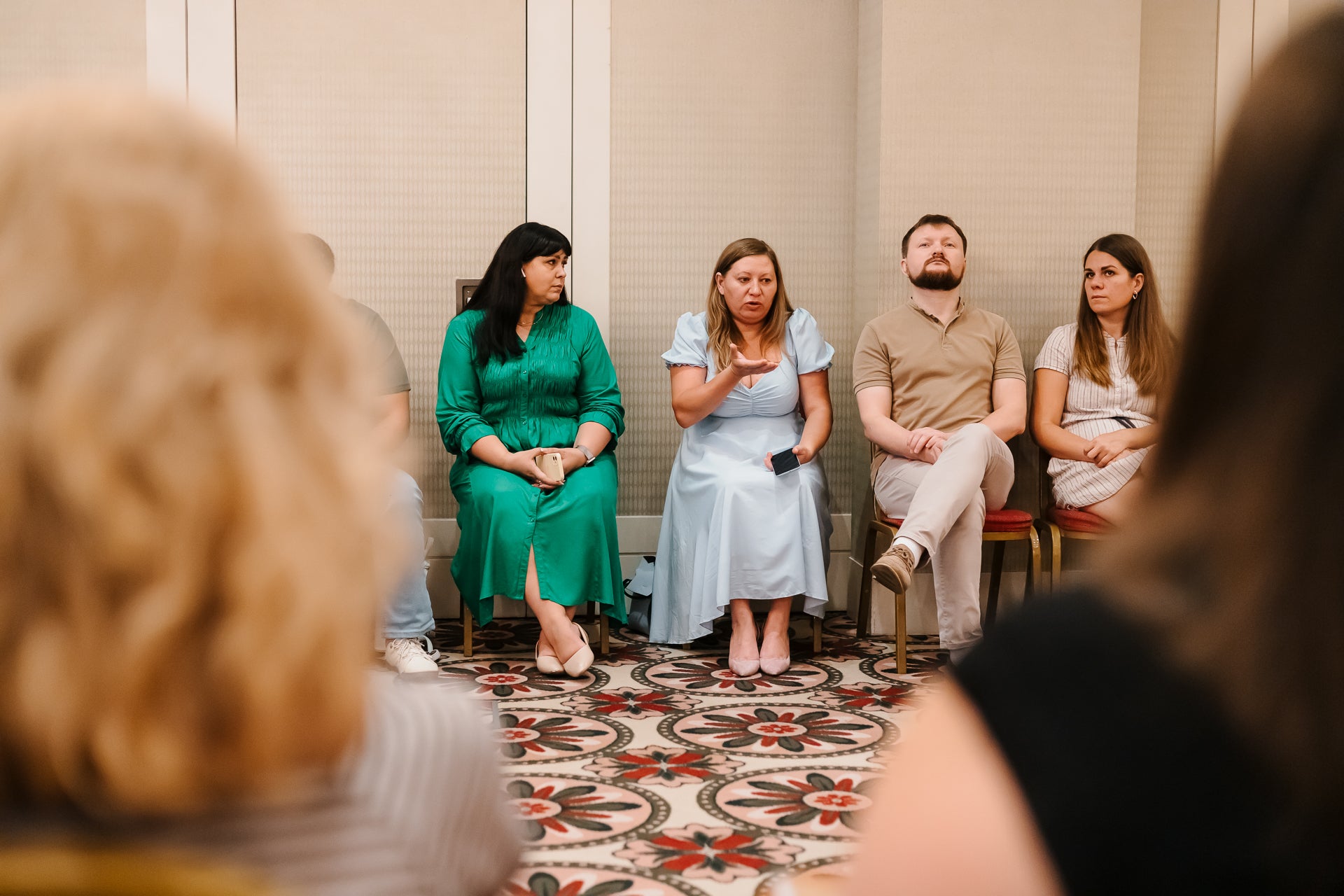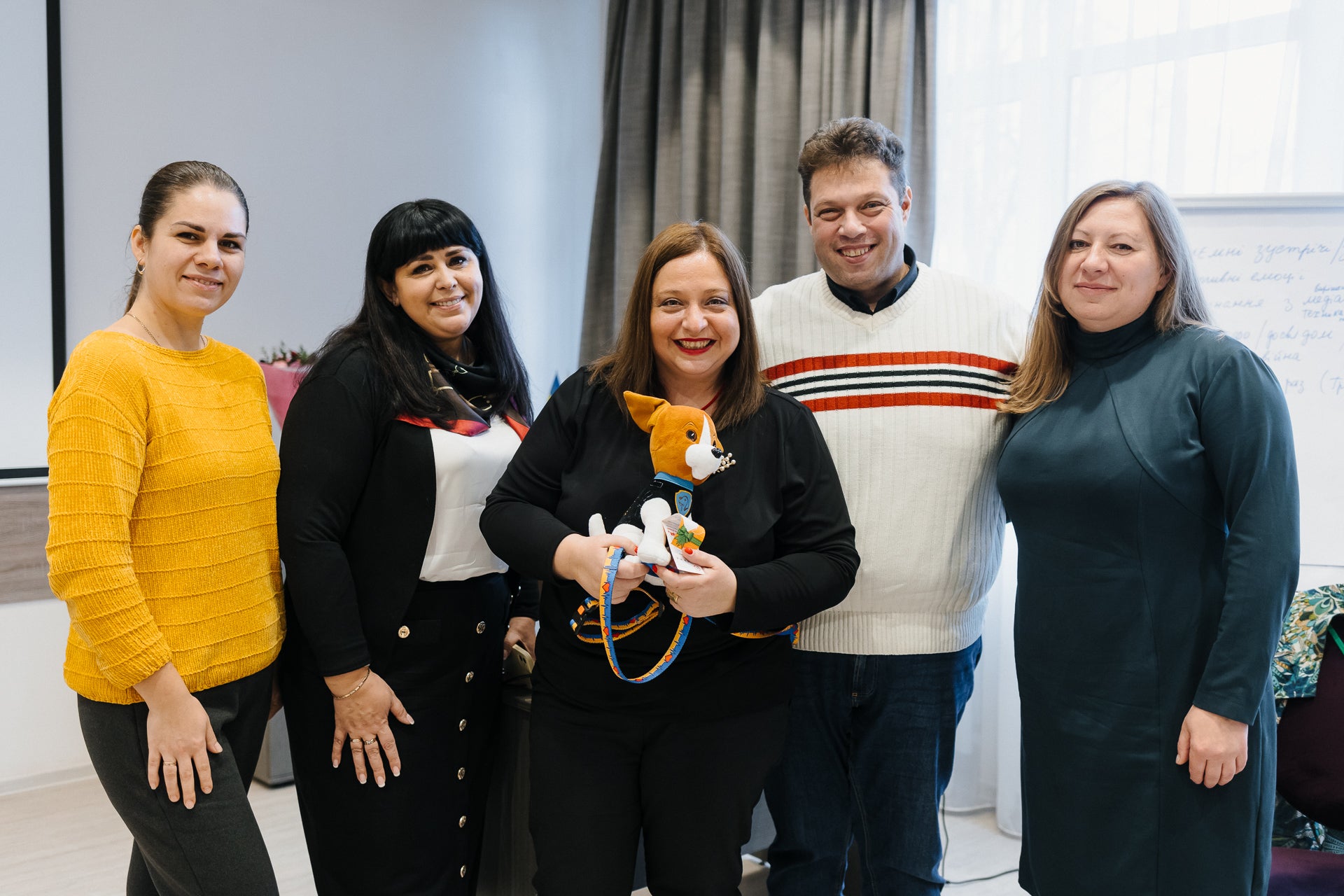Nataliia Khamko: "Ukrainian women demonstrate incredible will, even though they have a very difficult time"
Date:

Natalia Khamko is the Deputy General Director for Legal and Human Resources at Chernihiv Regional Hospital. At the beginning of the full-scale invasion, Natalia joined her medical colleagues to help civilian and military patients at the hospital. We spoke with Natalia at the training "The Role of Women in Mediation" held as part of the institution-building project "Building a Democratic, Peaceful and Gender Equal Society in Ukraine - Phase II", which is being implemented with the financial support of the Government of Norway.

How did you come to be on the front line of the war?
We did not leave our jobs. We came on February 24, working and living at our jobs until April 15. Immediately after February 24, about 350 people remained at the hospital, providing medical care around the clock, seven days a week, and by mid-March, their number had grown to 750. Colleagues provided medical care to both civilians and the military. Over a month and a half, they treated more than 1,100 wounded. More than 40 children of our employees were in the hospital, at their parents' workplaces, as their mothers were working and the hospital was under constant shelling, so we arranged a room for the children in the basement of the clinic, where they lived. We had no electricity, no water, no heat. Since the elevators were not working, our doctors carried patients to the operating rooms on the upper floors. The hospital was hit. Some buildings were almost completely destroyed after air raids at different addresses of our hospital and need to be rebuilt on a full scale.
What were the first weeks of the war like for you and your team?
Despite the constant shelling, the hospital had up to 20 operating rooms working simultaneously. Until the hospital was provided with generators, the doctors worked with headlamps and cell phone lights... It was hard, but there were also bright moments. There is an underground passage in the regional hospital, and a pregnant woman lived there for a long time. She did not want to go far from her home, which was very close to the defense line, because her military husband remained there, defending Chernihiv. She stayed with us until she gave birth and returned to us afterward. The maternity hospital was also destroyed, and all the new mothers stayed in the basement with their newborns. But the danger and shared concern brought people together incredibly. Everyone tried to help as much as they could.
How many women work at your hospital now?
We have more than 1700 employees, and more than half of them are women: nurses, paramedics, and doctors.

How was the "The Role of Women in Mediation" training useful for you?
I am responsible not only for the legal aspects of the hospital but also for human resources. And many girls come to me for advice. Sometimes, there are conflicts in the team, not large-scale ones, but rather misunderstandings. But in general, according to my observations, the war, on the contrary, reconciled people. Therefore, it is important to solve the problem quickly and not allow the conflict to grow, as it usually arises due to enormous stress. So this training was very useful for me personally. The new knowledge will help me to resolve conflict situations in the team more effectively and will help maintain mental health in the team.
What other trainings would you personally like to attend, and what trainings might be useful for your community?
Mental health support training is very important. There are a lot of people in the community who have been traumatized by the war. For example, we treat the wounded. Of course, there are psychotherapists in our hospital, but there are not enough psychologists. In the future, we plan to open a rehabilitation department for military personnel, as there is a great need for rehabilitation of military personnel. Therefore, first of all, it is necessary to train medical workers to communicate properly with military and civilian patients who suffered losses during the war, to provide medical care to military and civilian patients more effectively. We strive to train all staff to communicate correctly with patients affected by the war to take care of their health, including mental health.

Are there any challenges in communication between staff and patients now?
There are specifics here. Although we are a civilian hospital, many military personnel are also treated here. And they come to us with quite severe injuries. The staff perceives this emotionally. All my life I will remember when the Russians damaged an ammonia pipeline in Chernihiv after a powerful shelling. In this case, it was imperative to put all patients, even the seriously injured, into bomb shelters to reduce the risk of ammonia poisoning. The General Director gave the order to distribute respirators to everyone, and we went to the surgical building to distribute these respirators to both patients and medical staff. When I got to one wounded man, I realized that he was missing two upper limbs. He was amputated at shoulder level. It was so stressful, very difficult... Next to him was another wounded soldier. He said: "Don't worry, I'll take it off him later". Emotionally, it was extremely difficult for me, because even though I have been working in a hospital for many years, it is very difficult to see a young man without both arms.
And my female colleagues... For a month and a half, I observed the provision of medical care by our doctors, nurses, junior nurses, and cooks. At that time, there was no administrative work, so I, as well as other executives - deputy general directors and chief nurse - performed the duties of junior medical staff. We cleaned the floors in the intensive care unit and the reception area and rolled bandages for the surgical service departments. This is a huge number of wounded soldiers with no limbs and abdominal injuries. It is so hard. It's scary. We received tons of humanitarian aid, we unloaded trucks with medical solutions and other humanitarian supplies. And our women are now showing incredible will and endurance, even though it is difficult for them. They will be responsible for rebuilding Ukraine in the future. That is why it is important to help them with all our might and involve as much support as possible.
This interview was prepared within the framework of the project "Building a Democratic, Peaceful and Gender Equal Society in Ukraine - Phase II", which is funded by the Government of Norway.